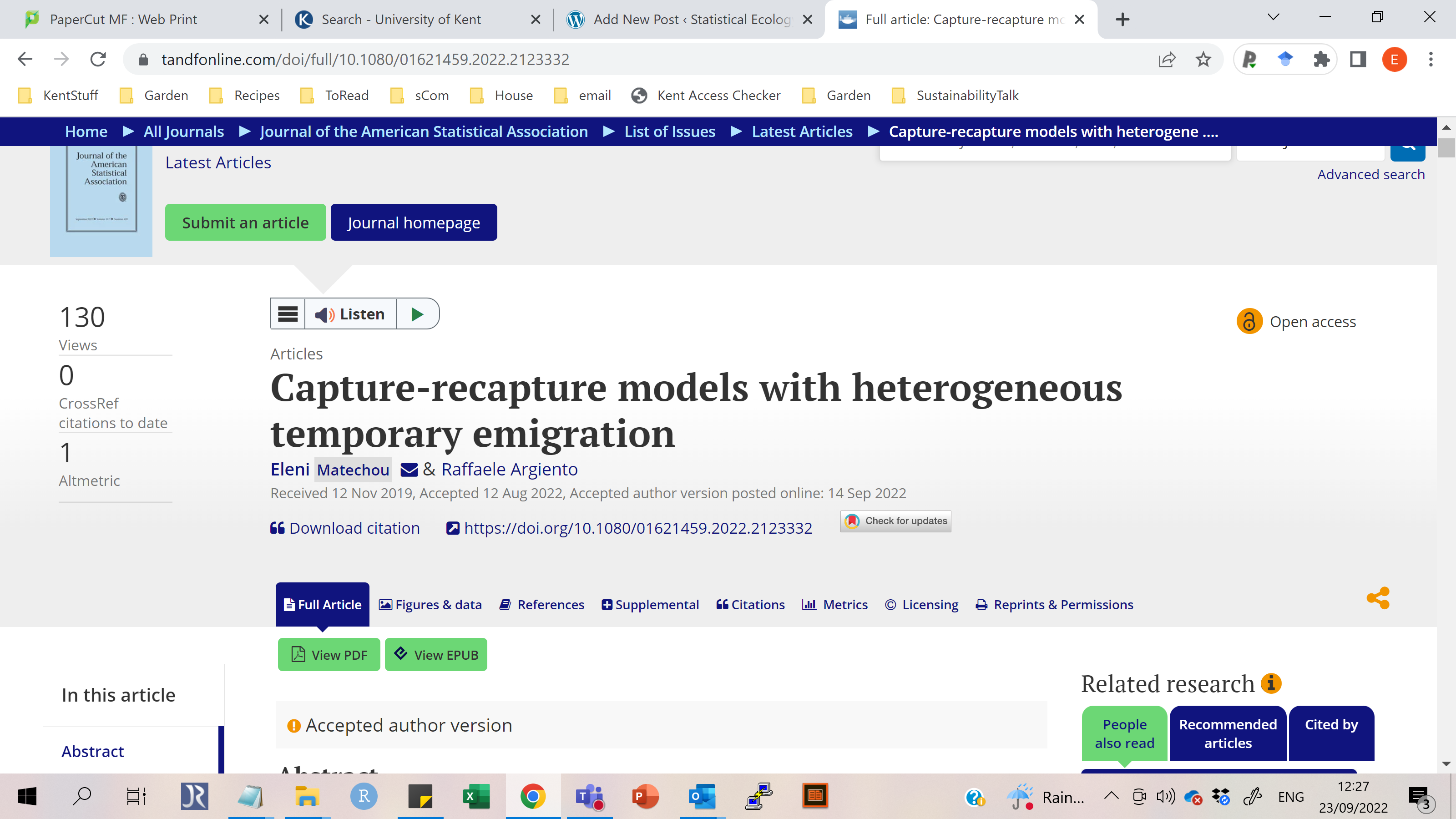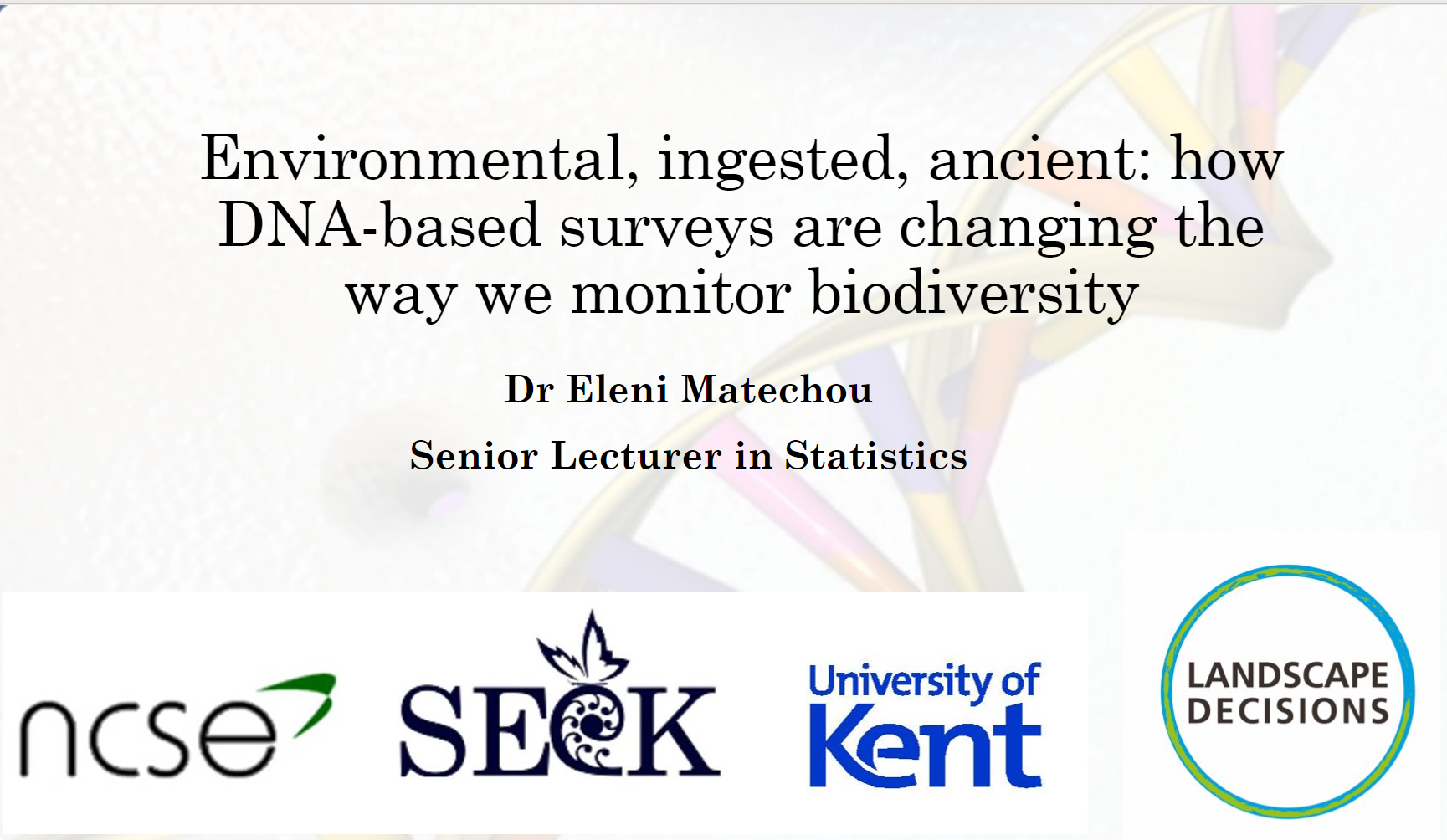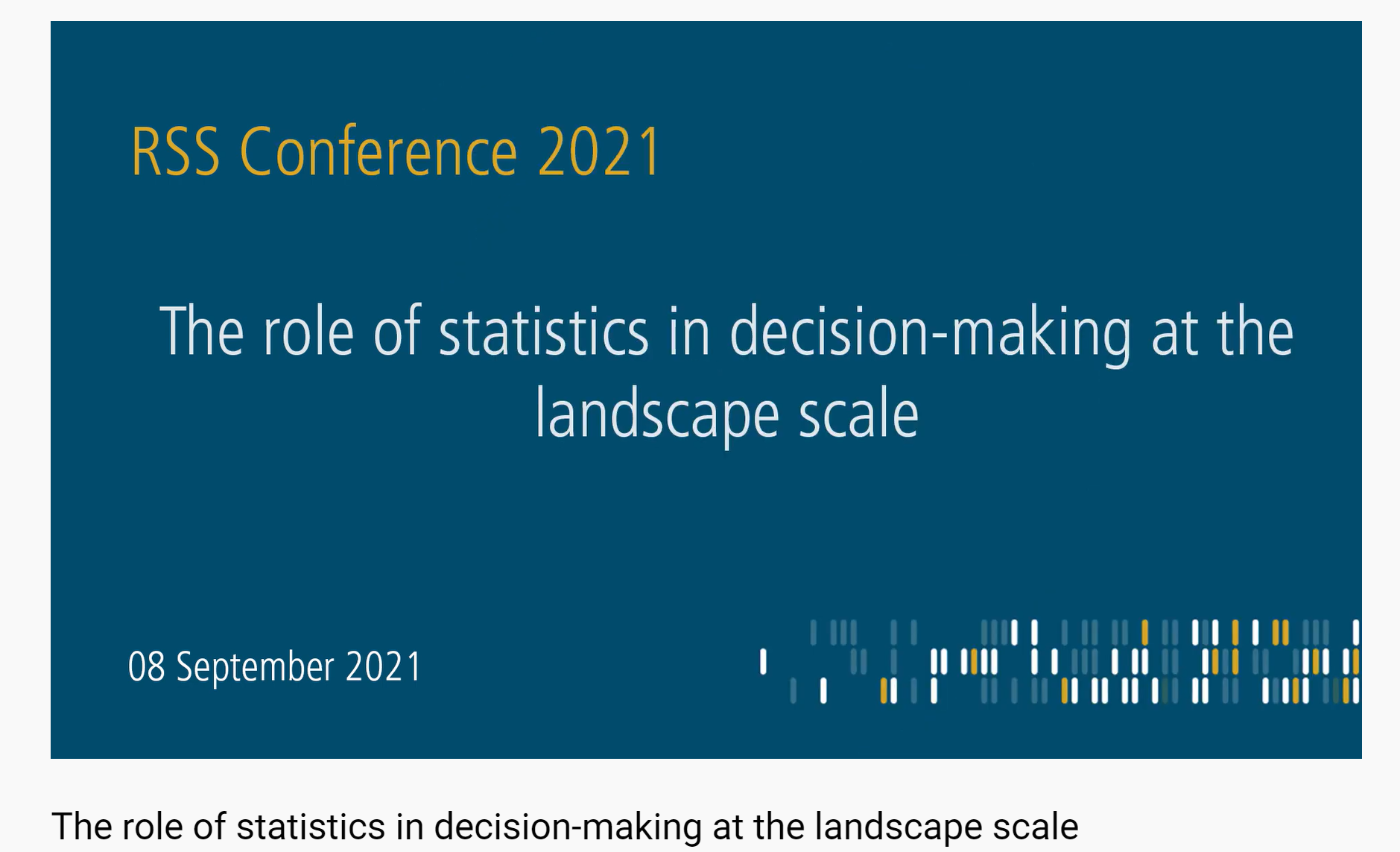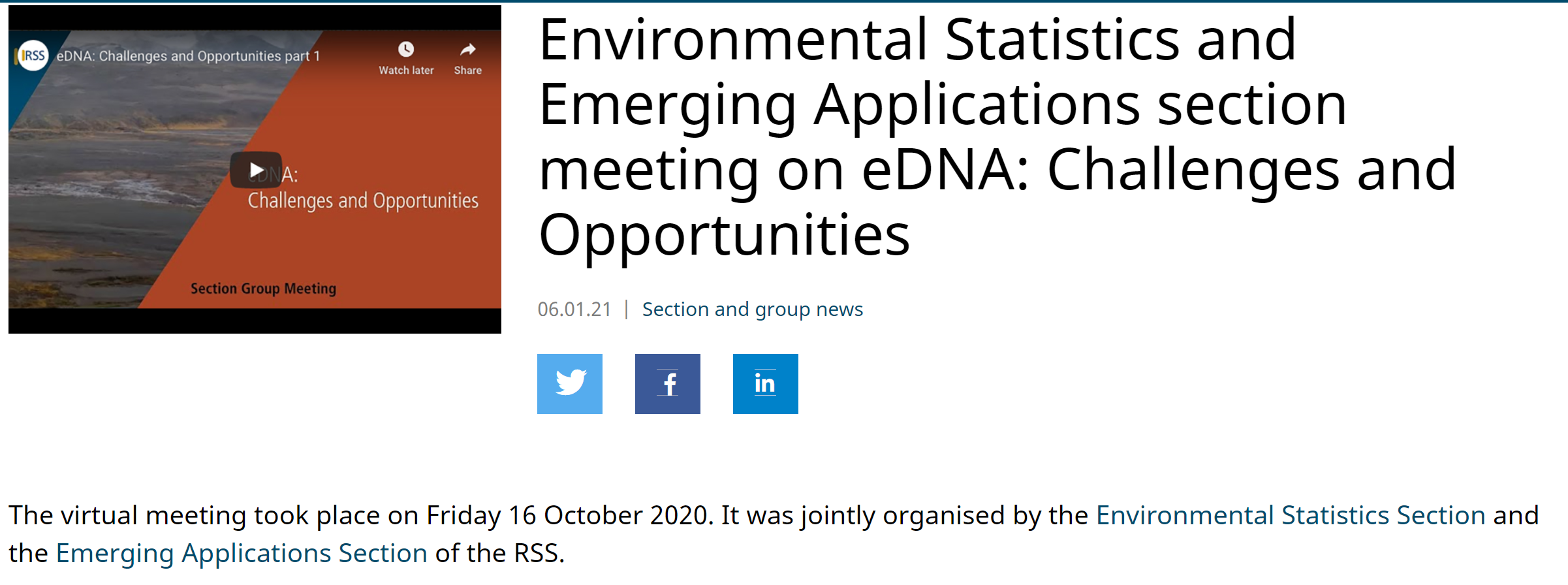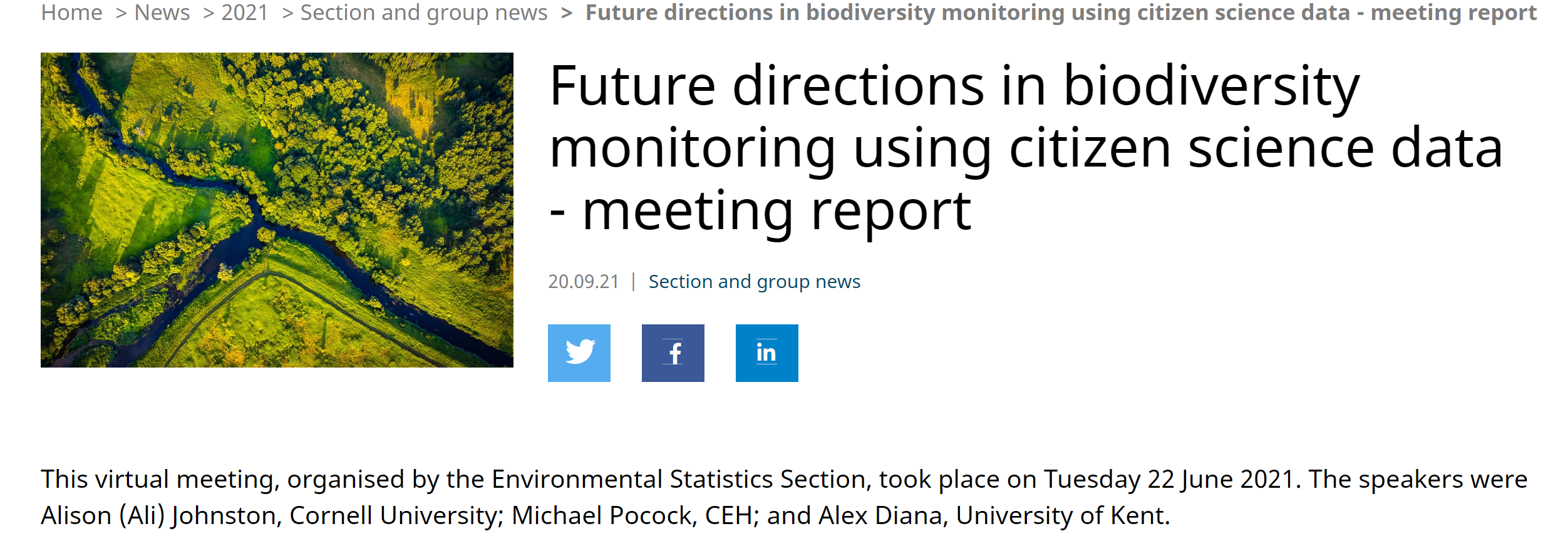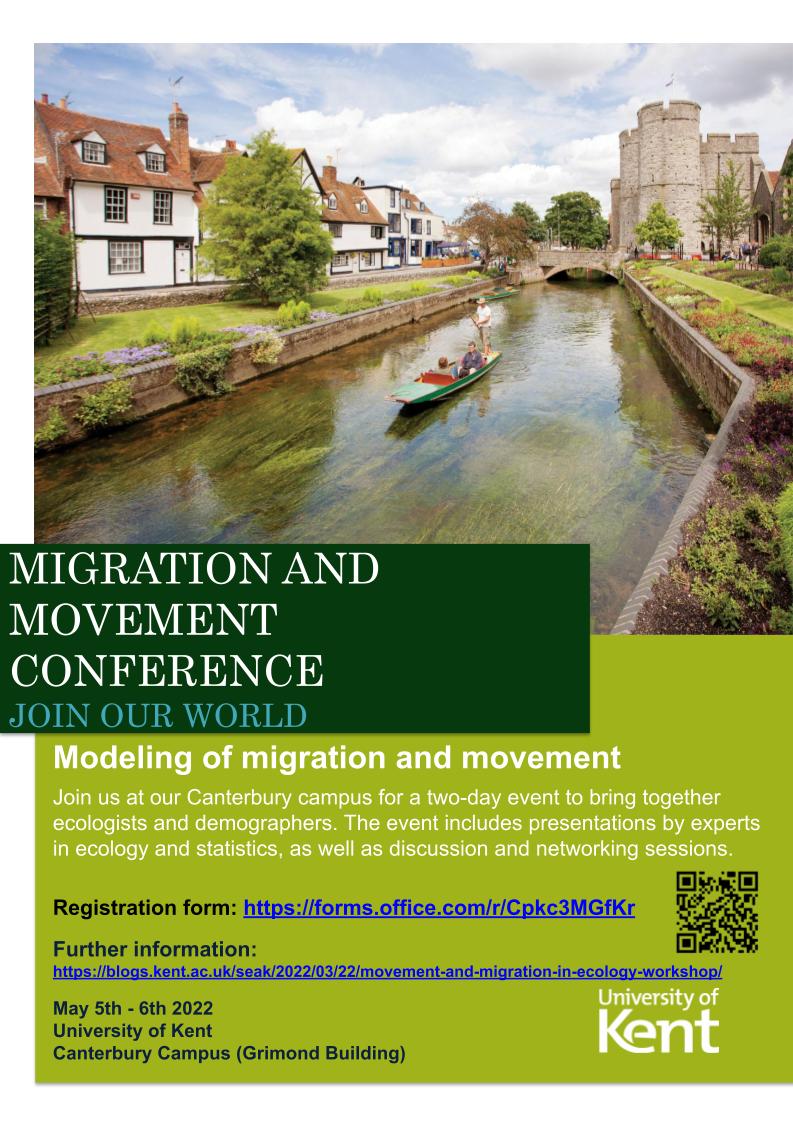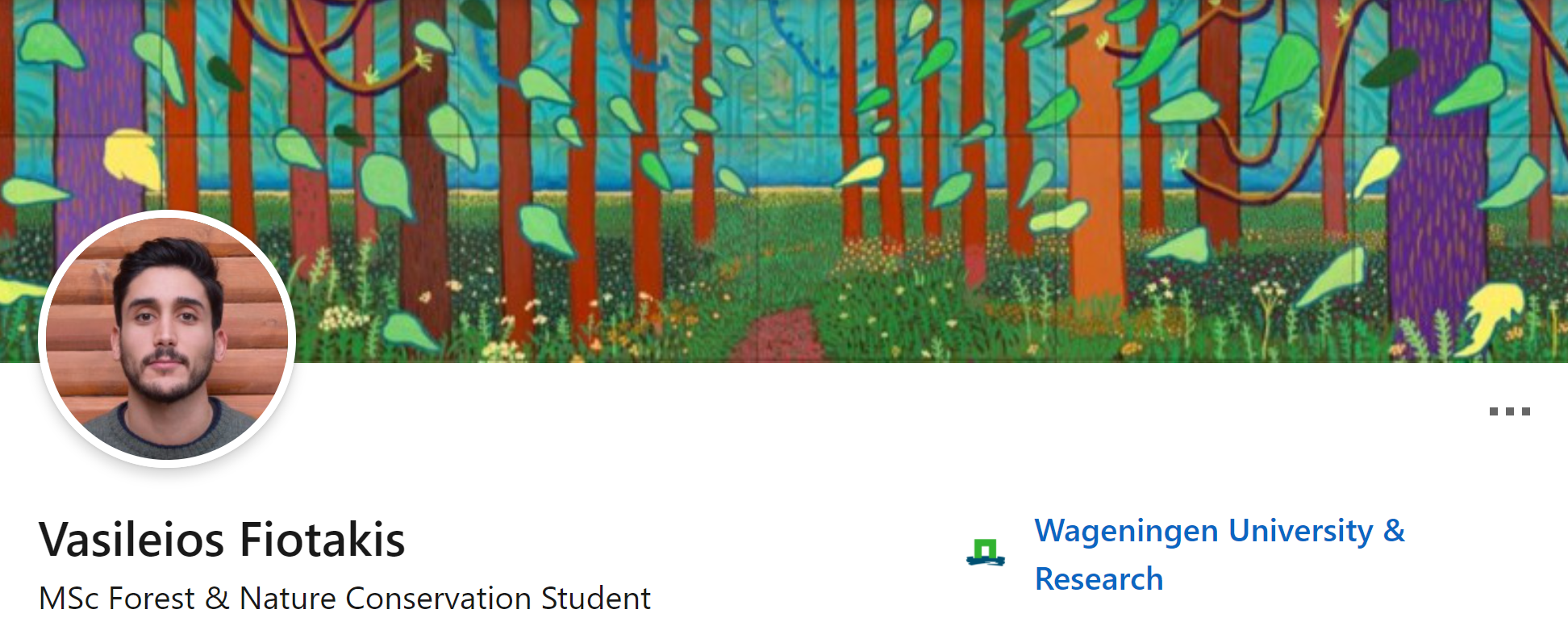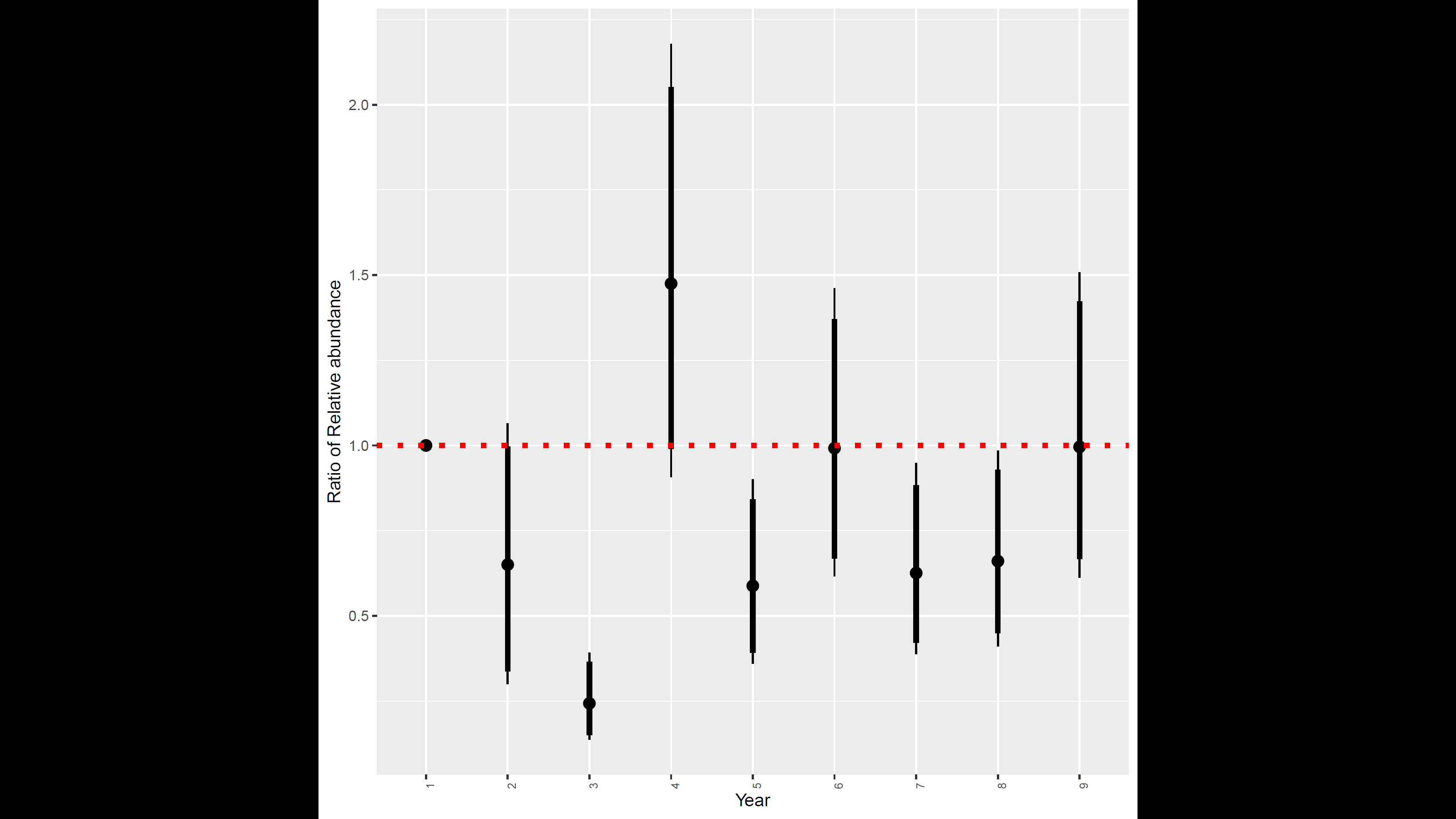Dr Eleni Matechou and Dr Bruno Santos have been awarded funding from the Migration and Movement SRT for their project on Modelling Human Population Registers.
PROJECT TITLE: MODELLING OF HUMAN POPULATION REGISTERS
Supervisors: The PhD student will be supervised by an interdisciplinary team across four international institutions, with expertise in
(1) Statistics (Dr Bruno Santos) and Statistical Ecology (Dr Eleni Matechou), University of Kent, Canterbury, England
(2) Demography (Dr Eleonora Mussino), University of Stockholm, Sweden
(3) Bayesian Inference/Statistical Ecology (Professor Ruth King), University of Edinburgh, Scotland
(4) Ecology/Statistical Ecology (Dr Blanca Sarzo), University of Valencia, Spain
Research background: Monitoring the size and characteristics of human populations using official censuses is a lengthy and costly process. As a result, in recent years, there has been an increased focus on using a statistical framework instead, referred to as multiple systems estimation (MSE), to infer population size of specific groups using opportunistic registers and incomplete lists. Examples include estimating the number of drug users in a city [1] and the number of victims of human trafficking [2]. MSE builds on well-established statistical theory and models, and can be employed using existing software [3]. However, MSE does not follow the same individuals over time to learn from their past experiences or behaviours and hence cannot account for individual heterogeneity in the probability of being observed in one or more registers, for dependence between individuals or to identify the factors behind temporary emigration.
These incomplete and imperfect human population registers are similar to ecological data, referred to as capture-recapture (CR) data, collected on wildlife populations, such as birds and mammals [4]. The corresponding ecological CR models have the same aims as MSE, namely estimating population size and monitoring population characteristics, but rely on completely different modelling approaches, with a strong focus on modelling individual time series [5]. However, CR models are computationally more demanding than MSE, and as a result do not scale well to large populations [6].
Project aims: The project aims to bring together MSE and CR modelling approaches and provide a general and unifying modelling framework for human population registers. The new models to be developed will overcome the shortcomings of the existing approaches, and hence will be applicable to high-dimensional data sets typically observed in human populations, and increasingly in wildlife populations, whilst at the same time modelling individual time-series data.
The models will be applied to data from several countries that routinely collect register data, such Sweden, Norway and Italy. We will obtain estimates of population size for different sub-populations, such as the migrant population each year, as well as of the probability of individuals of certain characteristics, such as age, sex etc., to appear in each register, e.g. employment. These estimates will then be compared to currently used metrics by each country to quantify the effect of over-coverage, which is the bias introduced by considering individuals who are not part of the population in demographic rates, such as mortality. The developed models and corresponding code will be made freely available and the methods will be disseminated through close collaboration with demographers in the different countries and corresponding workshops, as appropriate.
References
[1] King, R., Bird, S. M., Overstall, A. M., Hay, G., & Hutchinson, S. J. (2014). Estimating prevalence of injecting drug users and associated heroin‐related death rates in England by using regional data and incorporating prior information. Journal of the Royal Statistical Society: Series A (Statistics in Society), 177(1), 209-236. [2] Zhang, S. X., & Larsen, J. J. (2021). Estimating the size of the human trafficking problem: MSE and other strategies. Crime & Delinquency, 67(13-14), 2169-2187. [3] Overstall, A., & King, R. (2014). conting: An R package for Bayesian analysis of complete and incomplete contingency tables. Journal of Statistical Software, 58(7), 1-27. [4] McCrea, R. S., & Morgan, B. J. (2014). Analysis of capture-recapture data. CRC Press. [5] Matechou, E., & Argiento, R. (2022). Capture-recapture models with heterogeneous temporary emigration. Journal of the American Statistical Association, (just-accepted), 1-32. [6] King, R., Sarzo, B., & Elvira, V. (2022). Large Data and (Not Even Very) Complex Ecological Models: When Worlds Collide. arXiv preprint arXiv:2205.07261.
Research excellence: The student will join the thriving Statistical Ecology @ Kent research group, and the Migration and Movement Signature Research Theme, being supervised by leading researchers in demography, statistics and statistical ecology. They will also be members of the UK-wide National Centre for Statistical Ecology. They will attend London Taught Course Centre training, NCSE seminars, and SE@K specialist training and they will present research results at a range of appropriate national and international conferences. There will be ample opportunity for independent development, with the student gaining transferable knowledge of modern data science and statistics.
Please email Dr Eleni Matechou (e.matechou@kent.ac.uk) if you are interested in applying for the project or have any questions about the project or the application process.
Application Process
Applicants should follow the University of Kent’s online application process.
Please create an account and add your personal details as requested. Subsequently, you need to select your starting date (September 2023) and write your personal statement (see below). Choose “Other” for source of funding and “Definite” for funding. Add details of your qualifications, and then in the Research Information Tab, write “Dr Eleni Matechou” under supervisor and the title of the project (“Modelling of human population registers“) as the research topic. You do not need to add a research proposal.
As part of the process, you need to provide the following:
o details of your qualifications;
o two academic references;
o a personal statement
The statement must be maximum 500 words detailing (1) your reason for applying for a doctoral studentship (i.e, why do you want to pursue doctoral studies) and (2) your fit with the proposed project (how your educational/professional/personal background has prepared you well to undertake research in this topic).
Entry Requirements
We seek a candidate with a strong quantitative background, for example an MSc in Statistics or an MSc with high statistics content, or a background in demographic modelling. Experience coding in R, or similar, is essential.
The University of Kent requires all non-native speakers of English to reach a minimum standard of proficiency in written and spoken English before beginning a postgraduate degree. For more information on English language requirements, please visit this page.
About the Migration and Movement Signature Research Theme (SRT)
The Migration and Movement SRT is a vibrant community of over 100 scholars and practitioner academics working in the field of migration and movement, led by Prof. David Herd (English), Dr Bahriye Kemal (English), Dr Amanda Klekowski von Koppenfels (Politics), Dr Margherita Laera (Drama), Dr Tom Parkinson (Higher Education) and Dr Sweta Rajan-Rankin (Sociology). Members bring a number of interdisciplinary perspectives, from International Law to Urban Planning, Medicine, Health, Pharmacy, Statistics, Politics and Entrepreneurship. The SRT aims to expand our understanding of migration beyond the movement of people to include the migration of pathogens, remittances, technologies, cultures, scriptures, coffee, drugs, medicines, labour, and ideas.
The Migration and Movement SRT was launched in September 2021, at a historical moment when intersecting crises of movement were (and still are) taking place. As the COVID-19 pandemic was spreading, governments were enforcing lockdowns and movement restrictions, yet the UNHCR reported forced displacement at upwards of 75 million people. The year 2022 opened with new refugee crises in Ukraine and Ethiopia, while climate catastrophes and other military conflicts reaped havoc across the planet, notably in Pakistan. People facing hardship will continue to seek sustainable existences elsewhere and will be compelled to move, yet governments in the global north are preparing to render the seeking of asylum more difficult or even illegal.
As a public-facing, civic-oriented research group, we believe universities – the University of Kent in particular – can play a key role as leaders of intellectual debates and as creators of advocacy and evidence-based research around migration, its contexts, histories and benefits. We are committed to learning from the work of decolonial and postcolonial colleagues, and from the perspectives of persons with lived experience. Reflexive learning and intersectional empathy underpin every aspect of our ethics. We are keen to foster the next generation of scholars working on issues of migration and movement, broadly conceived, and welcome applications from scholars currently living in all parts of the world. For more information on the Migration and Movement SRT, please visit: https://research.kent.ac.uk/signature-themes/migration-and-movement/
Scholarship Information
Signature Research Theme scholars will receive the following:
- Annual stipend at UKRI rates (£17,668 in 2022/23);
- Annual tuition fees at Home rates (£4,596 in 2022/23)
o 2023/24 rates to be announced.
Home and International candidates are eligible to apply. The Abdulrazak Gurnah Doctoral Scholarship will cover International fees, while the Migration and Movement Doctoral Scholarship will cover Home fees only, including for those with UK settled or pre-settled status.
Selection Process
Supervisors will carry out the initial eligibility checks and shortlisting. All shortlisted candidates will then be ratified at Division level where a further selection process might occur. Four final shortlisted candidates per project will be submitted to the SRT Studentship Selection Panel.
Shortlisted candidates will be invited for an interview taking place the week commencing 27 February 2023.
Deadline
The deadline for applications is midnight on 3 February.


